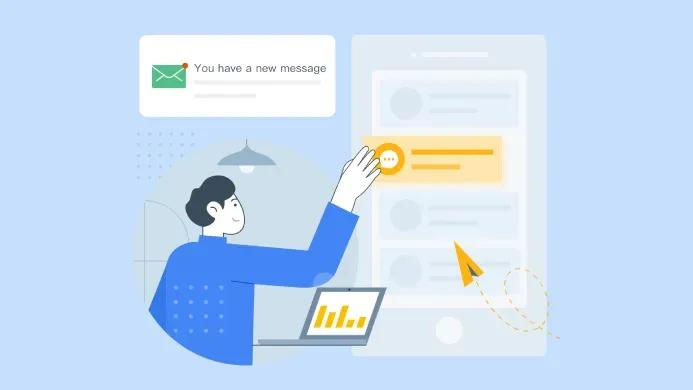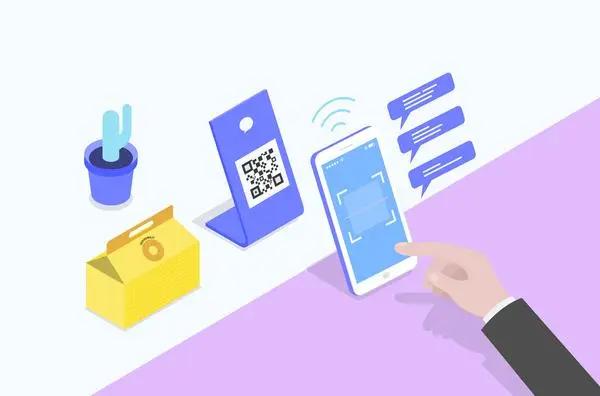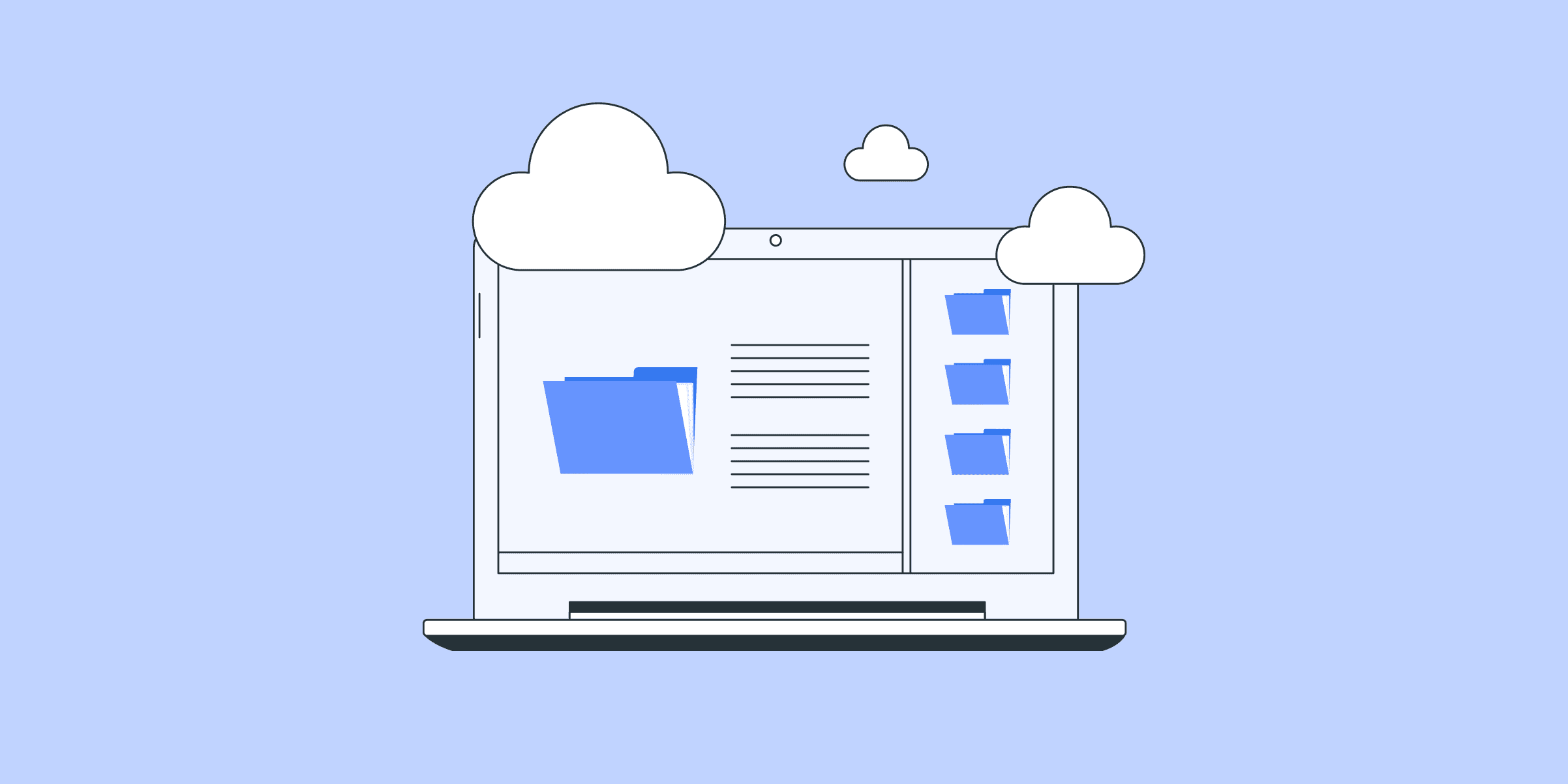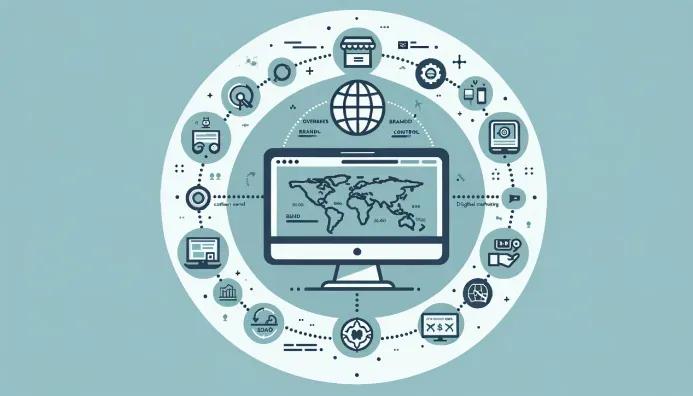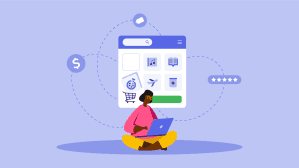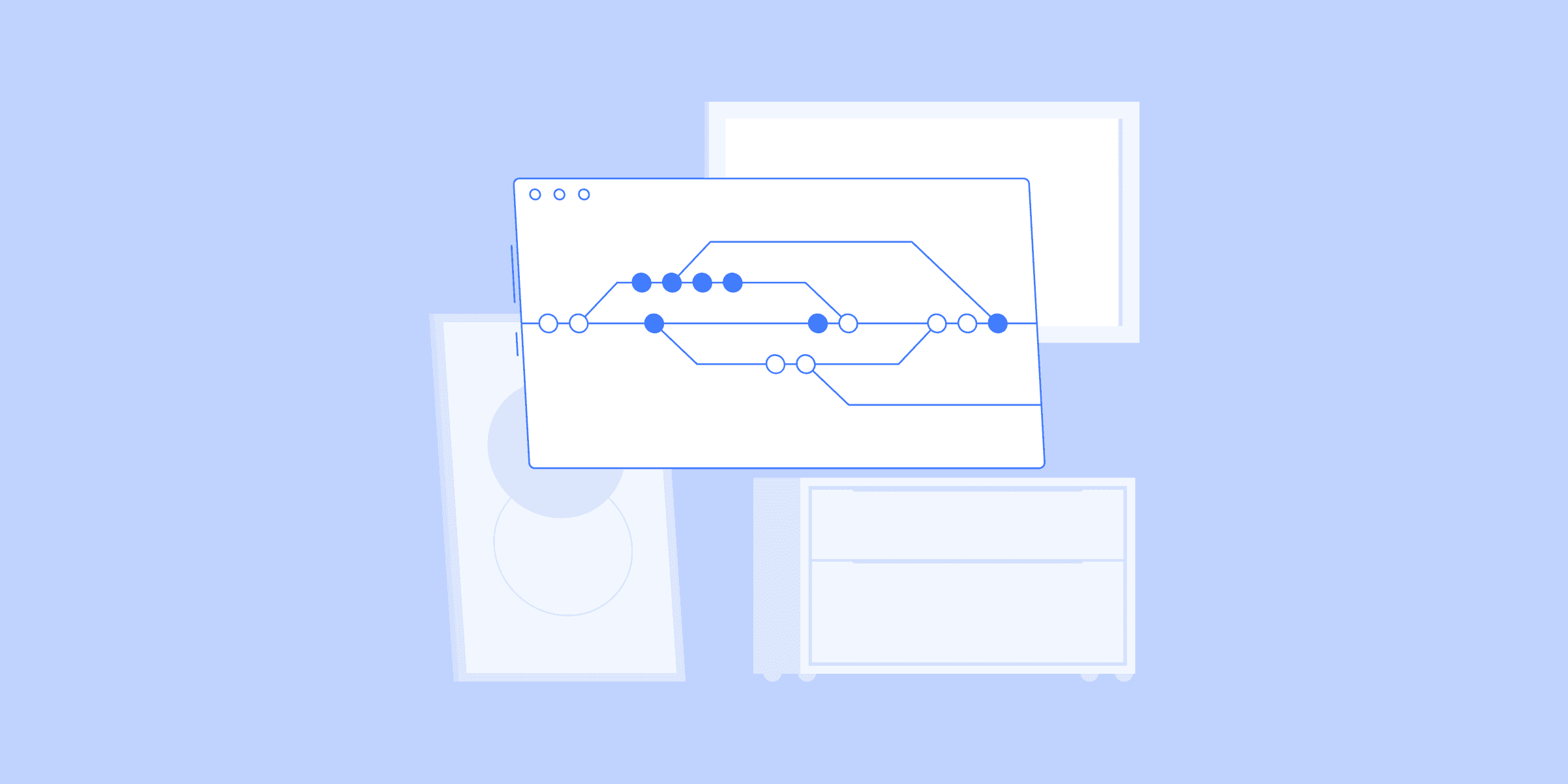
Transparent Proxies: Understanding Their Definition and Disadvantages
In the online world, proxy servers play an important role in providing privacy protection, security and freedom of access to users. And one type of proxy server is known as a transparent proxy. In this article, we will take an in-depth look at the definition of transparent proxies, how they work, and some of their drawbacks. By understanding the characteristics of transparent proxies, you will be able to better assess their applicability to your network needs. I. Definition and Working Principle of Transparent Proxy A transparent proxy is a type of proxy server that works by forwarding a user's request to a target server while transparently passing the user's real IP address to the target server. This means that the target server can recognize and record the user's real identity and location information. Transparent proxies usually do not modify or encrypt the content of the user's request, but only play the role of forwarding. II. Advantages and Disadvantages of Transparent Proxy Transparent proxies have their own unique advantages and disadvantages. Some of the major disadvantages of transparent proxies are analyzed below: 1. Restricted user privacy: Transparent proxies do not hide or modify the user's IP address when forwarding requests, and therefore cannot provide true anonymity. The target server has direct access to the user's real IP address and other identifying information, thus potentially tracking the user's online activities. 2. Easily blocked: Since the transparent proxy does not hide the user's real identity, certain websites and services may blacklist the IP address of the transparent proxy and deny access to it. This may result in users being unable to access specific websites or services, limiting their online experience and freedom of access. 3. Lower security: Transparent proxies do not encrypt or modify the content of user requests, which may result in a risk that data is susceptible to interception and tampering during transmission. This may expose the user's sensitive information to an insecure network environment. III. Applicable scenarios of anonymous proxies Despite the drawbacks of transparent proxies, anonymous proxies may be more suitable in certain network usage scenarios that require more advanced privacy protection and data security. The following are some of the scenarios where anonymous proxies are applicable: 1. Anonymous browsing and privacy protection: Anonymizing proxies provide users with more advanced privacy protection by hiding their real IP addresses. This is important for users who wish to browse anonymously on the Internet, protect their privacy and prevent tracking. 2. Network security and firewall traversal: Anonymizing proxies can help users traverse network firewalls and provide an additional layer of security to protect the user's data transmission. This is valuable for users who need to access restricted websites, bypass geo-restrictions or secure data on public Wi-Fi networks. 3. Data Mining and Competitive Intelligence: Anonymous proxies can be used in the areas of data mining and competitive intelligence to help users collect and analyze data about competitors, market trends, and consumer behavior while protecting the privacy of users' identities and activities. 4. Search engine optimization (SEO) and bidding ranking (PPC): anonymous proxies can be used in search engine optimization and bidding ranking campaigns to help users simulate searches in different geographic locations and IP addresses in order to obtain accurate search results and better competitive advantages. Summary: Anonymizing proxies, as a type of proxy server that provides more advanced privacy protection and data security, are suitable for scenarios that require anonymous browsing, privacy protection, firewall traversal, data mining, and competitive intelligence. When choosing a proxy, users should weigh the advantages and disadvantages of transparent and anonymous proxies and choose the right type of proxy based on their needs and goals. Whether it is a transparent proxy or an anonymous proxy, choosing a proxy provider with reliable quality and ensuring that it provides stable, secure connectivity and quality customer support will help achieve a better network experience and fulfillment of goals.
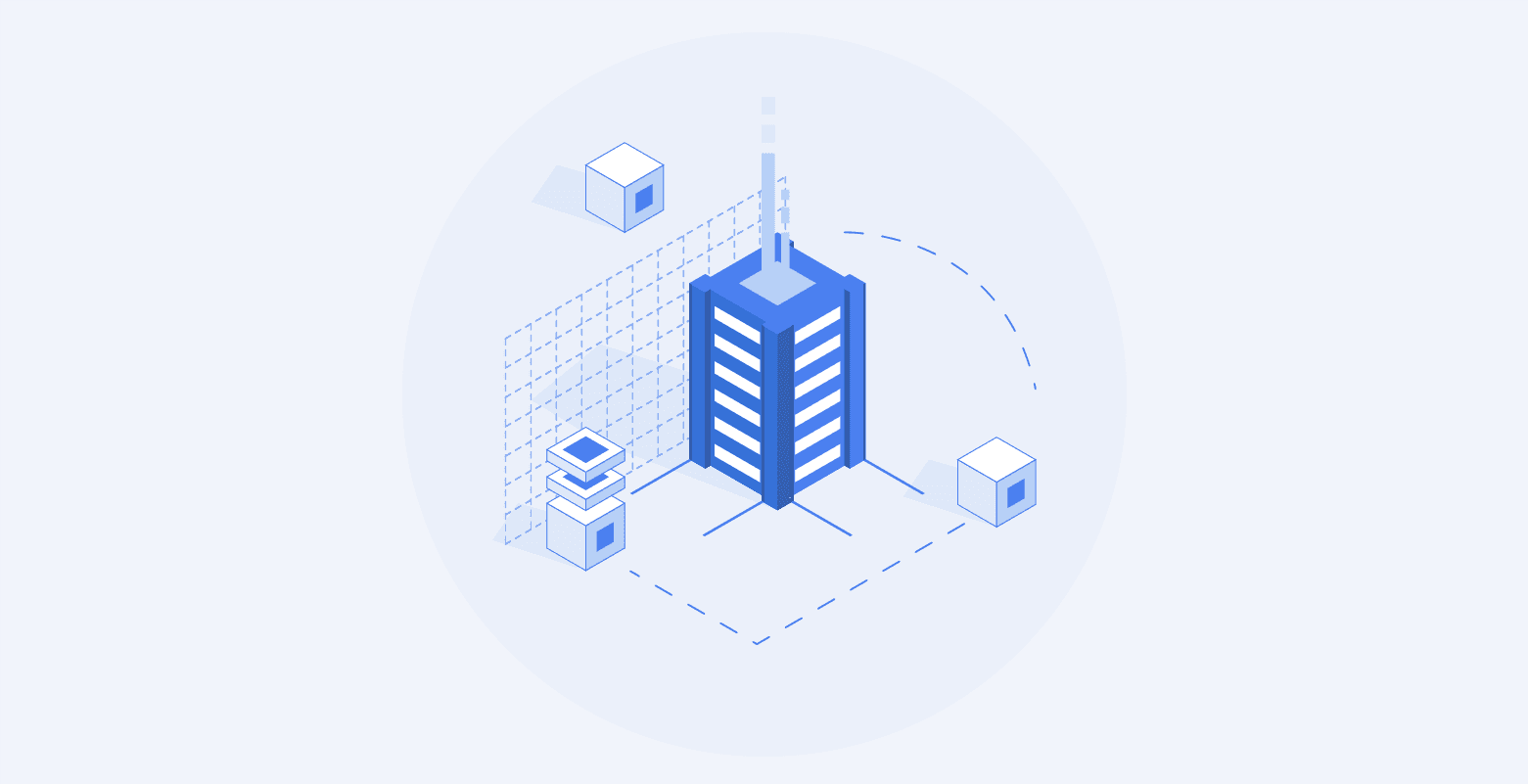
Ultimate Guide to Downloading and Configuring SOCKS5 Proxy on Your PC
If you're someone who spends a lot of time on the internet, chances are you've heard about Socks5 proxy servers. These servers are used to enhance internet security and privacy by masking your IP address and location from prying eyes. But did you know that Socks5 proxy servers can also allow for faster internet speeds and smoother downloads? In this blog post, we'll be exploring the benefits of utilizing Socks5 proxy servers for downloading on your PC.Firstly, it's important to understand what a proxy server is. A proxy server acts as an intermediary between your computer and the internet, hiding your IP address and location from the websites you visit. Socks5 proxies, specifically, offer even more security by encrypting your data and allowing you to bypass firewalls and filters.So, how can Socks5 proxies benefit your downloads? Well, for starters, using a Socks5 proxy can help you bypass download restrictions that may be in place on certain websites. This means you may be able to download files that were previously unavailable to you due to regional restrictions or other limitations.In addition to bypassing restrictions, using a Socks5 proxy can also allow for faster download speeds. This is because the proxy server can route your download through a different path, one that may be more optimized for speedy transfers. It's important to note that the speed increase you experience may vary depending on your location and internet connection, but it's definitely worth a try if you're experiencing slow download speeds.Now that we've covered the benefits of utilizing Socks5 proxies for downloading, let's talk about how to download and install one on your PC. There are many Socks5 proxy services available online, both free and paid. One popular option is ProxyRack, which offers a variety of proxy types including Socks5. To use a Socks5 proxy with ProxyRack, simply follow these steps:1. Sign up for a ProxyRack account and select the Socks5 proxy option.2. Download and install the ProxyRack software on your PC.3. Configure your internet settings to use the Socks5 proxy provided by ProxyRack.4. Start downloading and enjoy the benefits of faster speeds and enhanced security!It's important to note that while using a Socks5 proxy can enhance your internet security, it's not a foolproof method of protecting your data. Always ensure you're using secure browsing habits and other security measures to protect your personal information.In conclusion, utilizing Socks5 proxy servers can provide many benefits for downloading on your PC. From bypassing restrictions to increasing download speeds, Socks5 proxies offer enhanced security and privacy. By following the steps outlined above, you can easily download and install a Socks5 proxy on your PC and start enjoying these benefits for yourself.

Ultimate Guide to Finding a Reliable Working Proxy List
Working Proxy List – A Must-have for Effective SEO StrategiesIntroduction:In the world of search engine optimization (SEO), having a working proxy list is essential for executing successful campaigns. A proxy server acts as an intermediary between a user and the internet, allowing users to browse the web anonymously and access blocked websites. In this blog post, we will explore the importance of a working proxy list in SEO and its impact on improving website rankings and overall organic traffic.1. Overcoming Geo-restrictions:One of the key benefits of using a working proxy list is the ability to overcome geo-restrictions. Search engines like Google often serve different search results based on the user's location. With a proxy server, SEO professionals can simulate search queries from different locations, allowing them to understand how their website ranks in different regions. This knowledge can be used to optimize website content, target specific audiences, and increase organic traffic from different geographical regions.2. Competitor Analysis:In the highly competitive world of SEO, understanding what your competitors are doing is crucial. A working proxy list can help you gather valuable data about your competitors' websites without leaving a trace. By accessing their websites through a proxy server, you can analyze their meta tags, keywords, backlinks, and overall website structure. This information can then be used to develop better SEO strategies to outrank your competition and attract more organic traffic.3. Scraping and Crawling:Effective SEO campaigns rely heavily on data gathering and analysis. However, search engines often limit the amount of data that can be retrieved from their servers within a specific timeframe. By utilizing a working proxy list, SEO professionals can scrape and crawl search engine result pages (SERPs) without hitting these limits. By scraping SERPs, they can gather valuable data such as search volume, keyword competition, and the effectiveness of their current SEO tactics. This data can be used to refine SEO strategies and improve website rankings.4. Anonymity and Security:When conducting SEO research, it is important to remain anonymous to avoid any biases in search results. A working proxy list allows SEO professionals to browse the internet anonymously, ensuring that their search queries are free from any personalization or location-based biases. Additionally, using a proxy server adds an extra layer of security by masking the user's IP address, protecting them from potential attacks or tracking.5. Ad Verification:Digital advertising is an integral part of many SEO campaigns. Advertisements are often targeted based on the user's location, making it essential to verify if your ads are being displayed correctly. By using a working proxy list, you can simulate different locations and check if your ads are being shown to the right audience. This information can help optimize ad campaigns and increase their effectiveness.Conclusion:In today's competitive SEO landscape, having a working proxy list is crucial for executing effective strategies. It allows you to overcome geo-restrictions, analyze competitors stealthily, scrape important data, remain anonymous, and verify your ads. By leveraging the power of a proxy server, SEO professionals can make informed decisions, optimize their websites, and attract more organic traffic. So, if you're serious about improving your SEO performance, make sure to have a reliable working proxy list in your toolkit.

Ultimate Guide to LIKE.TG's Traffic Unlimited Residential Proxies
Welcome to our comprehensive guide to traffic unlimited residential proxies. In today's digital landscape, proxies play a crucial role in ensuring privacy, security, and unrestricted access to online content. In this guide, we will explore the features, benefits, and practical usage of traffic unlimited residential proxies. Whether you are a novice or an experienced user, this guide will equip you with the knowledge and tools to harness the full potential of residential proxies.First of all, make sure your current IP is in IP allowlist, Both API and User+Pass Auth must do this IP ALLOWLISTToday, we will introduce the features and usage methods of our Unlimited Traffic Rotating Residential Proxies. Benefits of our Unlimited Residential Proxy Package: Infinite Traffic: Enjoy the freedom of unlimited bandwidth, ensuring seamless browsing, data collection, and high-volume tasks without worrying about usage limits. Unlimited IPs: Gain access to an extensive pool of real residential IP addresses, enabling you to switch between IPs effortlessly and maintain a diverse online presence. Unlimited Requests: Harness the power of unlimited concurrent requests, allowing you to gather data, scrape websites, and perform various tasks with exceptional speed and efficiency. Real Clean Residential Proxies: Trust in the authenticity and cleanliness of our residential proxies, providing you with reliable and legitimate IP addresses sourced from real residential networks. The main difference between this type of proxy and Dynamic Rotating Residential Proxies is that you cannot specify a specific geographic location for usage. However, the overall usage methods are quite similar.First, let's begin with the API mode. While the API mode doesn't provide national-level location targeting, it does support the selection of HTTP(S) and SOCKS5 protocols. Start by selecting the desired proxy protocol and adding your current IP address to the whitelist. After completing these steps, you will be able to generate a list of proxies. If you intend to use the API mode proxy on other devices with different IP addresses, please make sure to add those IP addresses to the IP Allowlist before utilizing the proxy. By clicking on the open link, you will be able to generate a list of proxies. Proxy setup successful!Here are a few important points to keep in mind:- In API mode, the IP address will automatically rotate with each request. The default rotation time for each IP is set to 5 minutes.- You have the flexibility to integrate the API link into other applications or script codes. For example, in the configuration of an anti-detection browser, the API can be directly adapted to the browser. When applying, enter the quantity as 1.User+Pass AuthenticationFirst of all, make sure your current IP is in IP allowlist, Both API and User+Pass Auth must do this IP ALLOWLISTWe can test the IP proxy using the curl command. Let's make two requests to the proxy and observe the IP addresses returned. We have the function "each request changes IP" working correctly, we see two different IP addresses in the responses.After checking the two IPs on an IP detection website, we can confirm that they are real ISP type IPs, excellent! Here are some additional tips for you: 1. Select the authorized user: Choose the authorized user that you want to use. Creating an authorized account is crucial for username-password authentication mode. You can create an authorized account by clicking on "Create Auth Users" or "Auth-User List" on the left side. 2. Choose the IP rotation mode: Decide whether you want to use random IP mode or sticky IP mode. In random IP mode, the proxy will change the IP with each new connection request or at random intervals. In sticky IP mode, you can set the session duration (1-30 minutes) after which the IP will automatically switch. You can also manually change the IP by editing the session code. 3. HOST, PROXY USERNAME, and PROXY PASSWORD: These are important pieces of information required when applying the proxy in various scenarios. 4. CURL test command: Use this command to test the applicability of the current environment and the connectivity of the proxy. Only when the CURL command successfully retrieves the IP information, can you confirm that your current network environment and IP proxy are functioning correctly. 5. Batch generation of proxy lists: This feature allows you to generate proxy lists in bulk. You can choose the order of IP:PORT:USERNAME:PASSWORD and directly copy the generated result to use in the program where you need to apply the proxy. Each line in the batch-generated list represents a different IP. In the delayed IP mode, this function will automatically generate random session characters for each line. This makes it convenient and quick to use the generated proxy list. Feel free to reach out if you have any further questions or need assistance! Conclusion: Congratulations! You have reached the end of our comprehensive guide to traffic unlimited residential proxies. We hope this guide has provided you with valuable insights into the world of proxies and their immense potential. Traffic unlimited residential proxies offer you the freedom, security, and flexibility to navigate the online landscape with ease. Remember to always prioritize ethical and responsible proxy usage. Respect the terms of service of websites you visit and comply with local regulations. As you embark on your proxy journey, feel free to explore our wide range of proxy solutions and consult our support team for any further assistance. Embrace the power of traffic unlimited residential proxies and unlock new possibilities in your online activities.Stay connected, protected, and unrestricted with traffic unlimited residential proxies.

Ultimate Guide to Residential Proxies: Features, History, and Why They Matter
Introduction: Bridging the Digital Divide Navigating the ever-evolving landscape of internet security and data retrieval can be a challenging endeavor. Amidst the complexity of this landscape, residential proxies have emerged as a revolutionary tool. Going beyond merely acting as internet traffic channels, residential proxies bring an element of authentic human-like behavior to the table, distinguishing them from their data center counterparts. This article aims to unpack the nuanced layers of residential proxies, from their historical development to their operational features, providing you with a comprehensive guide on this indispensable digital asset. Definition and Basic Nature A Deeper Understanding of the Proxy Mechanism A residential proxy acts as an intermediary or a gateway that funnels your internet requests through an IP address tied to a real-world, residential location. What sets them apart from data center proxies is their origin: while data center proxies are generated and hosted in huge, specialized server farms, residential proxies are distributed by Internet Service Providers (ISPs) and linked to actual homes. The Importance of Authenticity The real-world origin lends an air of authenticity to residential proxies, setting them apart from their data center counterparts. The IP addresses tied to residential proxies are generally seen as more trustworthy because they are assigned to real residences. This "natural" backdrop significantly minimizes the risk of being flagged or banned by web servers, thereby providing a layer of security and reliability that is often missing in other types of proxies. Orientation:The Concept of "Human-Like" Interaction The primary orientation or focus of residential proxies is to simulate human-like online interactions. While data center proxies can often be detected due to their mechanical, algorithmic behavior, residential proxies are designed to imitate the patterns and quirks of human internet usage. Anonymity Meets Credibility This unique orientation allows residential proxies to serve a dual purpose: they offer anonymity while ensuring a level of credibility that is often required for sensitive operations like online transactions, market research, or content verification. By mimicking organic user behavior, they can interact with websites in a way that is almost indistinguishable from genuine users. Therefore, residential proxies offer a fine balance of confidentiality and trustworthiness. Structural Components The Network of Residential IPs At its core, the structural framework of a residential proxy involves a complex network of residential IP addresses. These IPs are tied together in a web of interconnected nodes, creating a robust, decentralized system that enhances both speed and security. Central Management and Configuration Despite the decentralized nature of individual IPs, the network is managed centrally by a dedicated proxy server. This central control allows for the advanced configuration of the residential proxy network. For instance, users can opt for a rotating set of IP addresses that change at predefined intervals, providing an extra layer of anonymity. Alternatively, they may choose to keep a set of static IPs for tasks that require a consistent identity. Customization According to User Needs The ability to toggle between static and rotating IPs gives the user a considerable advantage in terms of customization. Whether you're a marketer needing to scrape vast amounts of data without being flagged, or an individual wanting to access region-locked content, the network can be adjusted to meet your specific requirements. Historical Background Early Days of Internet Proxies The Inception of Web Intermediaries In the early days of the internet, proxy servers served as critical intermediaries between end-users and the wider world of cyberspace. These proxies acted not just as simple gateways, but also as essential components in enhancing user experience and security. They performed several functions, including filtering content and caching frequently accessed web resources, thereby speeding up internet use and reducing bandwidth consumption. Challenges and Limitations As beneficial as they were, early proxy servers had limitations, primarily in terms of their ability to evade detection during web interactions that required higher levels of security or anonymity. Websites grew increasingly sophisticated at identifying and blocking proxy users, creating the need for more advanced, undetectable forms of proxies. Evolution into Residential Proxies The Birth of a New Proxy Class The challenges and limitations of early proxy servers led to the advent of residential proxies. These were specifically engineered to simulate the browsing habits of regular home users, rendering them virtually indistinguishable from organic internet traffic. By emulating human-like interactions, residential proxies succeeded in "blending in," thereby sidestepping the filters and alarms that often flagged other types of proxies. Transforming the Proxy Landscape The introduction of residential proxies marked a significant milestone in internet history. They introduced a new layer of complexity and authenticity, effectively reshaping the landscape of online security and data retrieval. They became the go-to solution for users who needed a reliable, yet clandestine, method to access the web without triggering security alarms. Features of Residential Proxies (LIKE.TG Proxy Provider) Legitimacy The Trust Factor Perhaps the most distinguishing feature of residential proxies is their innate legitimacy. Sourced directly from ISPs and allocated to real residential addresses, these proxies are nearly impossible to discern from regular users. This "cloak of legitimacy" makes them invaluable for sensitive tasks that require a high degree of trust, such as conducting online banking, managing accounts, or participating in secure business transactions. Geographic Targeting Pinpoint Accuracy Residential proxies offer the unique advantage of being tied to specific geographic locations. This allows users to pinpoint target areas for various activities such as localized advertising, market research, or even content access. The geolocation feature provides businesses with unparalleled scope and flexibility, enabling them to tailor their strategies to specific regional demographics. Anonymity The Art of Being Invisible Anonymity is another cornerstone feature of residential proxies. These proxies are designed to rotate their IP addresses, either at set intervals or with each new web session. This constant flux makes it exceedingly difficult for web servers to identify or track user activities. It's like having a digital disguise that changes frequently, ensuring you can move about undetected in the virtual world. High Success Rate Breaking Down Digital Barriers Residential proxies stand out for their high rate of success in tasks that require evasion of detection. Their unique blend of human-like behavior, combined with the credibility stemming from their residential origins and geolocation features, makes them highly effective at bypassing stringent security measures. Whether it's scraping data from guarded databases or automating a series of complex tasks, residential proxies provide a reliable and efficient means to achieve your objectives without raising the eyebrows of web security systems. Conclusion: The Multifaceted Advantages of Residential Proxies In an era where digital anonymity, geographically-targeted content, and unfiltered data access have become essential for both individual and corporate needs, residential proxies offer a one-stop solution. Their unique blend of inherent legitimacy, pinpoint geographic targeting capabilities, and unmatched levels of anonymity make them indispensable tools in today's digital age. From evading web security measures to customizing geographic content and maintaining anonymity, residential proxies not only meet the diverse requirements of users but also do so with an extraordinary success rate. As we've explored throughout this article, the development and features of residential proxies have rendered them irreplaceable elements in the modern internet ecosystem.

Unblocking Digital Barriers: Navigating the World of Node Unblocker
Unblocking Digital Barriers: Navigating the World of Node UnblockerIn the ever-evolving landscape of online accessibility, encountering barriers to accessing certain websites or content can be frustrating. Fortunately, tools like Node Unblocker have emerged as lifelines for users seeking to bypass restrictions and unlock a world of digital possibilities. But what exactly is Node Unblocker, and how does it empower users to navigate the digital landscape with ease? Let's delve into the world of Node Unblocker and discover its transformative potential.Understanding Node Unblocker: Breaking Down Digital BarriersNode Unblocker is a powerful tool designed to circumvent internet censorship and access blocked websites with ease. By leveraging proxy servers located in different regions, Node Unblocker allows users to disguise their IP addresses and bypass geo-restrictions imposed by governments, internet service providers, or network administrators. Whether you're accessing social media platforms, streaming services, or news websites, Node Unblocker provides a gateway to unrestricted digital exploration.Empowering Users with Freedom and AccessibilityOne of the most significant advantages of Node Unblocker is its ability to empower users with freedom and accessibility. Whether you're living in a region with strict internet censorship laws or working within a restrictive network environment, Node Unblocker offers a lifeline for accessing blocked content and exercising your right to information and expression. With Node Unblocker, the digital world becomes more inclusive and accessible to all, regardless of geographical location or network restrictions.Enhancing Online Privacy and SecurityIn addition to bypassing censorship and accessing blocked content, Node Unblocker also enhances online privacy and security. By encrypting internet traffic and masking users' IP addresses, Node Unblocker helps safeguard sensitive information from prying eyes, including hackers, surveillance agencies, and malicious actors. This added layer of security ensures that users can browse the web with confidence, knowing that their online activities remain private and protected.Navigating the Node Unblocker EcosystemNavigating the Node Unblocker ecosystem is simple and straightforward. Users can easily access Node Unblocker through web browsers or dedicated applications, allowing for seamless integration into their existing digital workflows. With intuitive user interfaces and responsive customer support, Node Unblocker ensures a hassle-free experience for users seeking to bypass restrictions and unlock the full potential of the internet.Embrace Freedom with Node UnblockerIn a world where digital barriers often hinder access to information and resources, Node Unblocker emerges as a beacon of hope, offering users a pathway to unrestricted digital exploration and expression. Whether you're seeking to access blocked websites, bypass censorship, or enhance online privacy and security, Node Unblocker empowers users to reclaim control over their digital destinies and embrace the freedom of the internet. So why wait? Embrace the power of Node Unblocker and unlock a world of digital possibilities today.

Unblocking Tamilyogi with Proxy Servers: A Guide to Accessing Restricted Content
Title: Unlocking Tamilyogi: Accessing Your Favorite Tamil Movies Safely with Proxy ServersIntroduction: For Tamil movie enthusiasts, Tamilyogi has long been a go-to platform for streaming the latest releases and timeless classics. However, due to geographical restrictions and regulatory measures, accessing Tamilyogi may pose challenges for some users. Fortunately, proxy servers offer a solution by allowing individuals to bypass these barriers and enjoy uninterrupted access to their favorite Tamil movies. In this blog post, we'll explore the concept of Tamilyogi proxy servers, their benefits, and how they enable users to enjoy a seamless streaming experience.Understanding Tamilyogi Proxy Servers: Tamilyogi proxy servers serve as intermediary platforms that facilitate access to the Tamilyogi website by routing internet traffic through alternative IP addresses. These proxy servers act as a bridge between users and the Tamilyogi platform, allowing individuals to circumvent regional restrictions and access the website's vast collection of Tamil movies.Benefits of Using Tamilyogi Proxy Servers:1.Bypass Geo-Restrictions: Tamilyogi proxy servers enable users to bypass geo-restrictions imposed by internet service providers or governmental authorities. By connecting to a proxy server with a different geographical location, users can access Tamilyogi and stream Tamil movies from anywhere in the world.2.Enhanced Privacy: Tamilyogi proxy servers offer an additional layer of privacy by concealing users' IP addresses and encrypting their internet traffic. This helps protect users' identities and browsing activities from potential surveillance or monitoring efforts.3.Uninterrupted Access: With Tamilyogi proxy servers, users can enjoy uninterrupted access to the website, even if it is blocked or restricted in their region. By connecting to a proxy server, users can bypass censorship measures and enjoy seamless streaming of their favorite Tamil movies.How to Use Tamilyogi Proxy Servers:1.Find a Reliable Proxy Server: There are numerous Tamilyogi proxy servers available online. Users can choose from a variety of options based on factors such as speed, reliability, and geographical location.2.Configure Proxy Settings: Once a proxy server is selected, users can configure their internet browser or device to connect to the chosen proxy server. This typically involves entering the proxy server's IP address and port number in the browser or device settings.3.Access Tamilyogi: After configuring the proxy settings, users can navigate to the Tamilyogi website and enjoy streaming their favorite Tamil movies without any restrictions or limitations.Conclusion: Tamilyogi proxy servers offer a convenient and effective solution for users seeking to access the website and stream Tamil movies securely and anonymously. By bypassing geo-restrictions, enhancing privacy, and ensuring uninterrupted access, proxy servers enable users to enjoy a seamless streaming experience without worrying about censorship or regulatory measures. Whether you're a Tamil movie enthusiast or simply looking to explore the vast collection of films available on Tamilyogi, proxy servers provide the key to unlocking this treasure trove of entertainment. Embrace the power of Tamilyogi proxy servers and immerse yourself in the world of Tamil cinema today!

Unblocking YouTube: How Croxy Proxy Helps Access the World's Favorite Video Platform
Title: How to access YouTube with a proxy: The ultimate guide to unrestricted browsingIntroduction:In the digital age, YouTube has become an indispensable platform for entertainment, education and communication. However, there are times when access to YouTube is limited due to geographical restrictions or network filters. Fortunately, Croxy Proxy is a robust tool that allows users to bypass these restrictions and access YouTube from anywhere in the world. In this blog post, we will explore the benefits of using Croxy Proxy to unblock YouTube and provide a step-by-step guide on how to use it effectively.1. Understanding Croxy Proxy:Croxy Proxy is a web-based proxy server that acts as an intermediary between your device and the YouTube server. It hides your IP address and encrypts your online activity for a secure and anonymous browsing experience. With Croxy Proxy, you can bypass regional restrictions and access YouTube videos without any limitations.2. Benefits of using Croxy Proxy for YouTube:a) Unblock restricted content: Croxy Proxy allows you to bypass the geographic restrictions imposed by YouTube, giving you access to a wider range of content. Whether you're travelling abroad or living in a censored country, Croxy Proxy can help you overcome these barriers.b) Improved privacy and security: Croxy Proxy encrypts your internet traffic, protecting your personal information from hackers and prying eyes. This is especially important when accessing YouTube from public networks or unsecured Wi-Fi hotspots.c) Fast and reliable connection: Croxy Proxy has high-speed servers that ensure smooth streaming of YouTube videos. This means you can enjoy your favourite content without buffering or lag, enhancing your viewing experience.3. How to use Croxy Proxy to access YouTube:Step 1: Open your favourite web browser and search for "Croxy Proxy" in the search engine.Step 2: Click on the link to the official website of the Croxy Proxy to access their homepage.Step 3: On the Croxy Proxy homepage, you will find a search bar. Type "YouTube" or the URL of the YouTube video you want to access.Step 4: Croxy Proxy will redirect you to the YouTube website where you can browse and watch videos without any restrictions.4. Additional tips and precautions:a) Update your proxy server: To ensure seamless access to YouTube, check regularly for any updates or changes to the proxy server provided by your proxy provider.b) Clear your browser cache: Clearing your browser cache will help eliminate any potential conflicts or issues that may arise when using the proxy.Conclusion:Croxy Proxy is a powerful tool that allows users to bypass restrictions and access YouTube from anywhere in the world. With its secure and fast connection, Croxy Proxy ensures a seamless browsing experience, allowing you to enjoy your favourite YouTube videos without any restrictions. By following the step-by-step instructions provided in this blog post and implementing additional precautions, you can unlock a world of entertainment, knowledge, and communication on YouTube. Start using Croxy Proxy today and enjoy unrestricted browsing on YouTube!
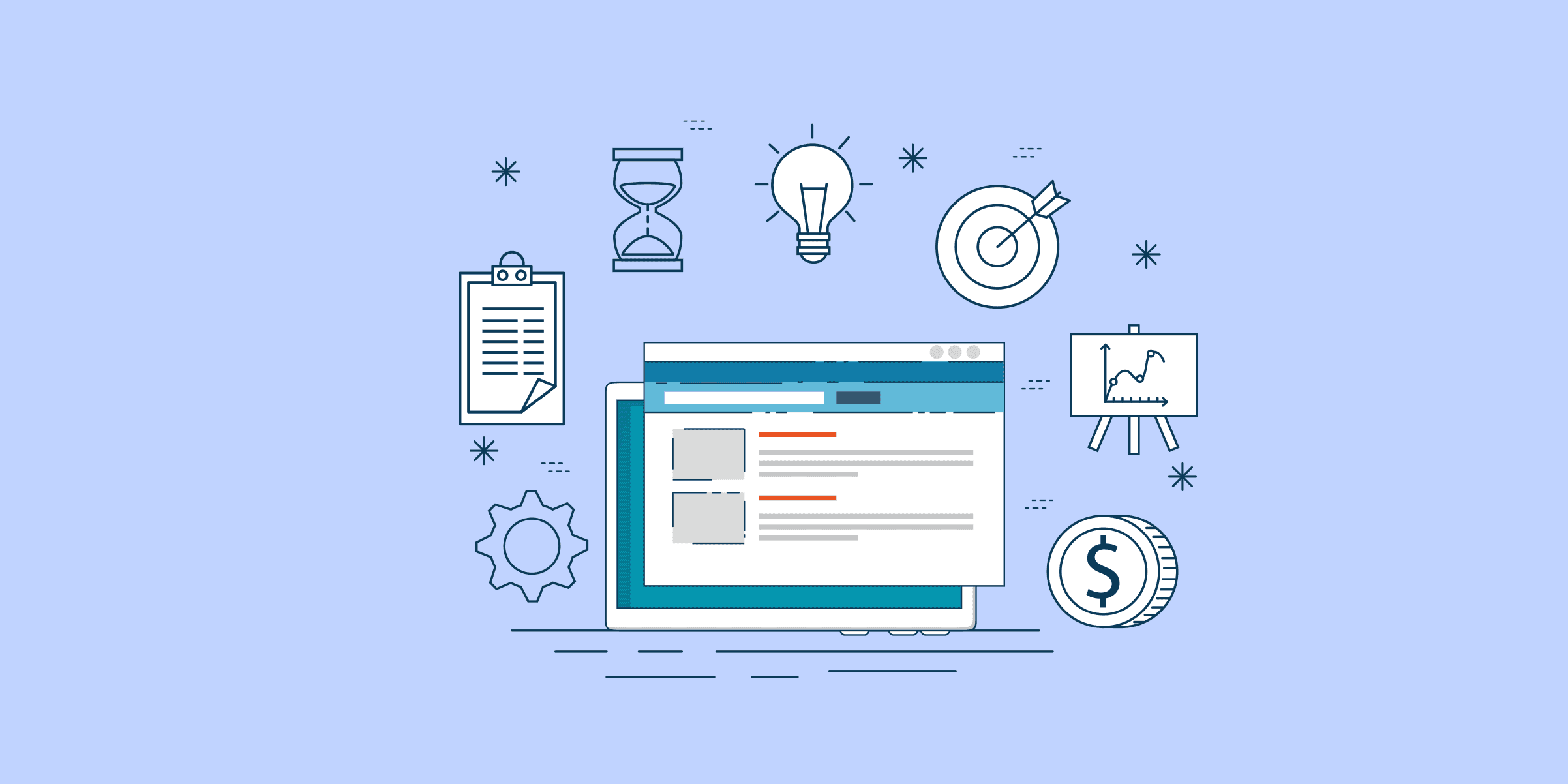
Unblocking YouTube: The Power of a YouTube Proxy
How to Use YouTube Proxy to Access Restricted ContentDescription: In this blog post, we will explore the concept of YouTube proxy and learn how to use it to bypass restrictions and access blocked content. We will discuss the benefits of using a proxy server, the different types of YouTube proxies available, and step-by-step instructions on how to set up and utilize a proxy server to enhance your YouTube browsing experience. By the end of this article, you will have a comprehensive understanding of YouTube proxy and be able to enjoy unrestricted access to the videos that interest you.Introduction:The internet has become an essential part of our lives, and YouTube has undoubtedly become one of the most popular platforms for sharing and watching videos. However, many countries and organizations impose restrictions on YouTube, limiting access to certain content. This is where a YouTube proxy comes into play. A proxy server acts as an intermediary between your device and the YouTube server, enabling you to access blocked content by routing your request through a different IP address. Let's delve deeper into the world of YouTube proxy.Types of YouTube Proxies:There are several types of YouTube proxies available, each with its own unique features and benefits. Let's take a look at the most common ones:1. Web-based Proxies:Web-based proxies are the most straightforward way to access YouTube content. These proxies allow you to enter the YouTube URL on their website, and they will fetch the content for you. This method is convenient as it requires no installation or configuration. However, web-based proxies may have limitations in terms of speed and reliability.2. Proxy Browser Extensions:Proxy browser extensions, such as those available for popular web browsers like Chrome and Firefox, provide a seamless browsing experience. These extensions route your YouTube requests through a proxy server, allowing you to bypass restrictions and watch videos without any hassle. Moreover, these extensions often come with additional privacy features, enhancing your online security.Setting up and Using a YouTube Proxy:Now that we understand the different types of YouTube proxies, let's learn how to set up and use them effectively. In this section, we will focus on using a web-based proxy as an example:1. Search for "YouTube proxy" in your preferred search engine. You will find a list of popular web-based proxy websites.2. Choose a reliable proxy website and enter the YouTube URL in the provided field on the proxy's homepage.3. Click on the "Go" or "Browse" button, and the proxy server will fetch the YouTube page for you.4. Once the page loads, you can browse and watch videos as you would on the regular YouTube website.5. If you encounter issues with a specific web-based proxy, try using an alternative proxy website from the search results.Conclusion:YouTube proxies provide a convenient way to bypass restrictions and access blocked content. Whether you choose a web-based proxy, a browser extension, make sure to select a reliable and secure option. While proxies can enhance your YouTube browsing experience, it's essential to use them responsibly and respect the content creators' rights. With the knowledge gained from this article, you can now explore a whole new world of YouTube videos previously inaccessible to you, enriching your entertainment and knowledge-sharing experience.

Uncover Hidden Opportunities with a YouTube Email Scraper
Title: Boost Your YouTube Channel with Email Scraping TechniquesIntroduction:In today's digital era, YouTube has become a powerful platform for both individuals and businesses to share their content and reach a wider audience. To maximize your YouTube channel's potential, one effective strategy is email scraping. In this blog post, we will explore what YouTube email scraping is and how it can boost your channel's growth. Let's dive in!1. Understanding YouTube Email Scraping:YouTube email scraping refers to the process of collecting email addresses of your channel's viewers and subscribers. This technique allows you to build a targeted email list, which can be used for various marketing purposes, such as promoting new video releases, sharing exclusive content, and driving traffic to other platforms.2. Benefits of YouTube Email Scraping:a) Targeted Marketing: By collecting email addresses of your channel's viewers, you can laser-focus your marketing efforts. You can send personalized emails to your audience, increasing the chances of engagement and conversion.b) Increased Engagement: Through email, you can establish a direct line of communication with your subscribers and build a loyal community. By sharing valuable content and encouraging interaction, you can foster stronger relationships and boost engagement on your YouTube channel.c) Cross-Promotion: With a targeted email list, you can promote your YouTube channel on other platforms, such as social media, blogs, or websites. This helps to expand your audience reach and increase the number of subscribers.3. Best Practices for YouTube Email Scraping:a) Use Automation Tools: There are various automation tools available that can assist in the process of collecting email addresses from your YouTube channel. These tools can scrape email addresses from comments, subscribers, and other sources, saving you time and effort.b) Offer Incentives: To encourage viewers to share their email addresses, offer incentives such as exclusive content, discounts, or giveaways. This will increase the conversion rate and ensure a higher number of email sign-ups.c) Optimize Landing Pages: Create dedicated landing pages with compelling copy and clear call-to-action (CTA) buttons to capture email addresses. Make sure the landing pages are mobile-friendly and visually appealing.d) Ensure Compliance with Privacy Laws: When collecting email addresses, make sure to comply with privacy laws and regulations. Provide clear information about data usage and allow subscribers to unsubscribe easily.4. Implementing an Email Marketing Strategy:Once you have collected a list of email addresses, it's crucial to implement an effective email marketing strategy. Here are a few tips to get you started:a) Segment Your List: Divide your email list into different segments based on user interests, demographics, or behavior. This allows you to send targeted emails tailored to each segment's preferences.b) Personalize Your Emails: Address subscribers by their first name and tailor the content based on their preferences and engagement history. Personalization improves open rates and engagement.c) Provide Value: Avoid spamming your subscribers with promotional content. Instead, focus on delivering valuable content, such as tutorials, behind-the-scenes, or exclusive tips. This will keep your subscribers engaged and eager to open your emails.Conclusion:YouTube email scraping is a powerful technique to boost your channel's growth and engage with your audience on a more personal level. By collecting email addresses and implementing an effective email marketing strategy, you can significantly increase your subscriber base, build a loyal community, and drive more traffic to your YouTube channel. Remember to always comply with privacy laws and prioritize delivering valuable content to your subscribers. Happy email scraping!

Uncovering High Stash Proxy HTTP: Is it really effective in preventing real IP tracking?
Nowadays, network security and privacy protection are increasingly emphasized. Many people use proxy servers to hide their real IP addresses in order to protect personal information and privacy. And High Stash Proxy HTTP, as one of the common proxies, is considered to be effective in preventing real IP from being traced. But how reliable is it? In this article, we will unveil the working principle of High Stash Proxy HTTP and discuss its advantages and limitations in protecting the privacy of real IP. First, what is a high-hiding proxy HTTP? HTTP is a kind of web proxy server, which can forward the user's web request to the target website and hide the user's real IP address at the same time. When the user uses HTTP, the target website can not directly obtain the user's real IP address, but only see the IP address of the proxy server. This allows the user's identity to be hidden, thus providing a certain degree of anonymity and privacy protection. Second, the working principle of high anonymity proxy HTTP The working principle of high anonymity proxy HTTP mainly involves the following steps: 1. The user sends a network request: the user sends a network request through a browser or other applications, requesting access to the target site. 2. Request is forwarded to a proxy server: the user's request is forwarded to the High Narcity Proxy HTTP server. 3. Replacement of request header information: High-anonymity proxy HTTP will replace the IP address and other characteristics of the original request, so that the target website can not directly recognize the user's real IP and other identity information. 4. Forwarding the request to the target website: the replaced request is forwarded to the target website by the proxy server. 5. Response from target website: The target website returns the response to the proxy server. 6. Response forwarded to the user: the proxy server will forward the response of the target site to the user, the user in the browser or application to see the content of the target site. Third, the advantages of high anonymity proxy HTTP Highly anonymous proxy HTTP has certain advantages in protecting the privacy of the user's real IP: 1. anonymity: high anonymity proxy HTTP can hide the user's real IP address, so that the user's identity can be protected, so as to maintain a certain degree of anonymity on the network. 2. Bypass blocking and restrictions: High-anonymity proxy HTTP allows users to bypass some geographical restrictions or blocking and access blocked website content. 3. Prevent tracking: Since the target site can not directly access the user's real IP address, high anonymity proxy HTTP can effectively prevent some simple tracking and surveillance behavior.Fourth, high Stash HTTP Proxy in the commercial aspects of use 1. Data collection and crawling business: In large-scale data collection and crawling business, frequent requests to the target website may lead to IP blocking. Using High Stash HTTP Proxy can rotate IP addresses and reduce the risk of being blocked. For example, if a market research company needs to collect commodity price data from all over the world, they can use High Stash HTTP Proxy to simulate IP addresses of different countries to complete the data collection task stably and efficiently. 2. Prevent anti-crawlers and blocking: Many websites block users who frequently request the same IP in order to prevent crawlers and malicious behavior. Using high stash HTTP proxy can realize IP rotation and reduce the possibility of being blocked. For example, if an e-commerce company wants to monitor competitor's prices, they can use High Stash HTTP Proxy to avoid being blocked by the target website, so that they can continuously get competitor's price information. 3. SEO Optimization: For website operators, search engine optimization (SEO) is an important means to improve website ranking and traffic. Using a high stash of HTTP proxies, website operators can simulate different search engine crawlers visiting the website to understand the website's ranking on different search engines, and then optimize keywords and content to improve search engine ranking. For example, an e-commerce website can use the High Stash HTTP proxy to simulate Google, Baidu and other search engine crawlers to check the website's keyword rankings in the search results, optimize the keywords and website structure, and increase search traffic. As a common web proxy method, High Stash Proxy HTTP does have some advantages in protecting the privacy of users' real IP. It can help users bypass blocking, achieve anonymous access, and prevent some simple tracking behaviors. However, users should also be aware of its limitations when using High Stash Proxy HTTP, avoid operations involving sensitive information, and choose a trusted proxy service provider.

Uncovering the Benefits of Using UK Proxy IP Addresses
Title: How to Use UK Proxy IP to Access Geo-Restricted ContentIn today's digital age, accessing geo-restricted content has become a common challenge for internet users around the world. Whether you want to watch your favorite UK TV shows or access region-specific websites, a UK proxy IP can be a valuable tool to bypass these restrictions. In this blog post, we will explore what UK proxy IP is, how it works, and the benefits of using it to access geo-blocked content.What is a UK Proxy IP?A UK proxy IP is an intermediary server located in the United Kingdom that acts as a buffer between your device and the internet. When you connect to the internet through a UK proxy IP, your real IP address is masked, and websites only see the IP address of the proxy server. This allows you to appear as if you are browsing from the UK, even if you are located in a different country.How Does a UK Proxy IP Work?When you access a website through a UK proxy IP, the proxy server requests the web page on your behalf and then forwards the data to your device. By routing your traffic through a UK server, you can bypass geo-restrictions that are based on your physical location. This means you can access content that is only available to users in the UK, such as streaming services, online retailers, or news websites.Benefits of Using a UK Proxy IP1. Access Geo-Restricted Content: One of the main advantages of using a UK proxy IP is the ability to access geo-blocked content that is not available in your region. Whether you want to watch British TV shows, listen to UK radio stations, or shop from UK online stores, a UK proxy IP can help you bypass these restrictions.2. Enhance Online Privacy: By hiding your real IP address and encrypting your internet traffic, a UK proxy IP can also enhance your online privacy and security. This can protect your personal information from prying eyes and prevent third parties from tracking your online activities.3. Improve Internet Speed: In some cases, using a UK proxy IP can actually improve your internet speed by reducing network congestion and optimizing data transfer. This can be especially beneficial when accessing streaming services or online gaming platforms that require a stable and fast connection.4. Avoid Censorship: If you are located in a country where internet censorship is prevalent, using a UK proxy IP can help you circumvent these restrictions and access the content that is blocked in your region. This can be particularly useful for journalists, activists, or individuals who rely on unrestricted access to information.In conclusion, a UK proxy IP is a valuable tool for accessing geo-restricted content, enhancing online privacy, improving internet speed, and bypassing censorship. Whether you want to watch UK TV shows, shop from British online stores, or protect your online activities, using a UK proxy IP can provide you with the freedom and security you need. Try it out today and unlock a world of possibilities right at your fingertips.
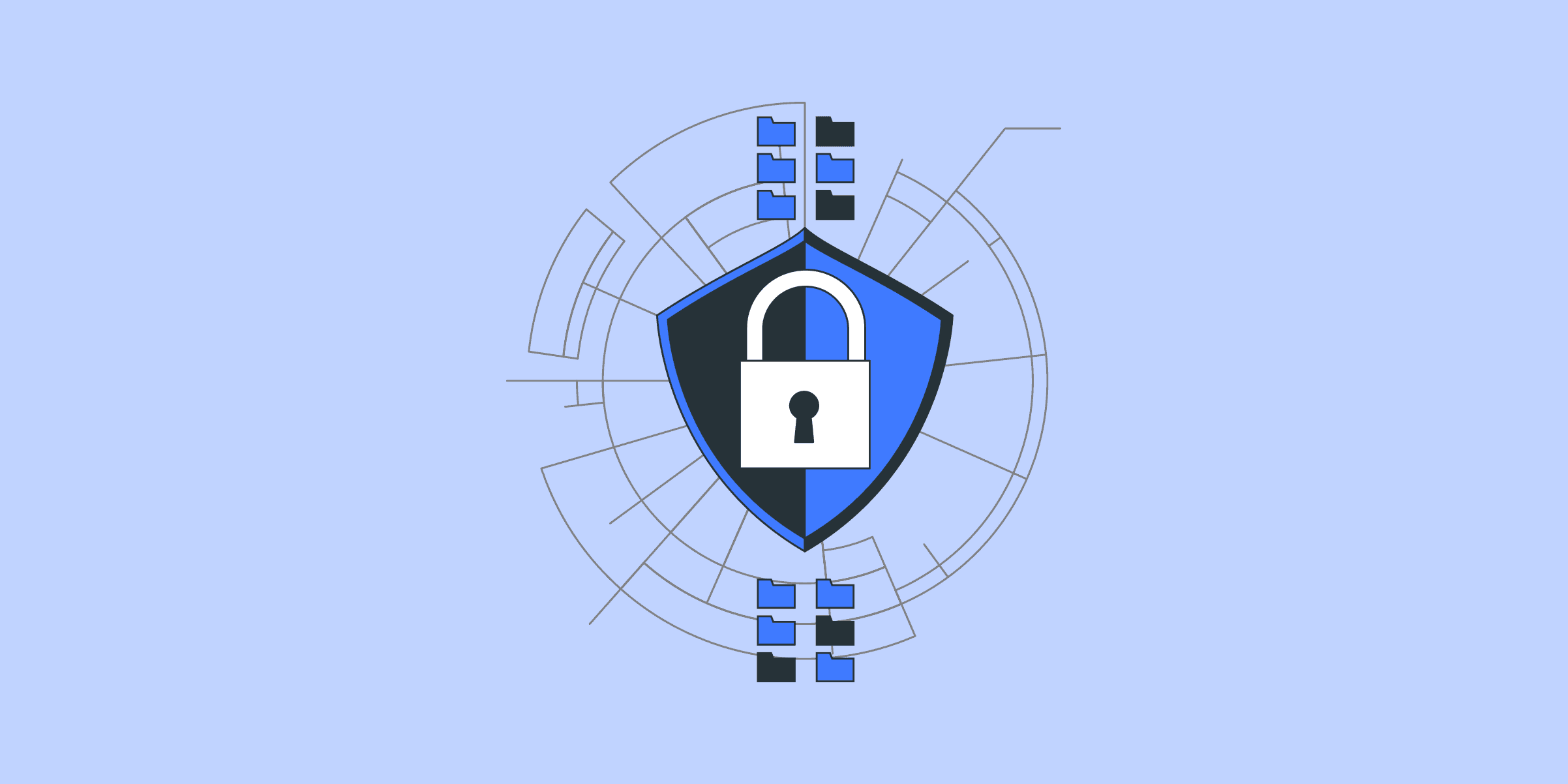
Understanding and Bypassing Geo-Blocking in 2023
I. Introduction A. Definition of Geo-Blocking: In the digital age, geo-blocking represents a significant barrier to universal content access. It's a mechanism where access to internet content, such as websites, services, or applications, is restricted or altered based on the user's geographical location. This digital barrier is not merely a technical imposition but also a manifestation of regulatory and commercial strategies. As online content becomes more tailored to specific regional markets, the prevalence of geo-blocking has risen, posing challenges to the notion of a borderless internet. B. Overview of the Article: This article delves into the multi-faceted world of geo-blocking. We'll explore how geo-blocking operates, the rationale behind its implementation, and the variety of content it affects. Additionally, we will investigate the legal framework that governs geo-blocking and discuss several strategies to circumvent these geo-restrictions. Our aim is to provide a comprehensive understanding of geo-blocking, its impacts on digital media consumption, and how users can navigate this landscape. II. The Concept of Geo-BlockingA. Definition and How it Works: Geo-blocking functions primarily by identifying a user's IP address. Each IP address carries geolocation data, acting as a digital marker of where the user is accessing the internet. When a user attempts to access certain online content, the website's servers assess this IP address. If the user's geographic location falls outside the designated area for content access, the site implements geo-blocking, either restricting access entirely or modifying the content available. This process is automatic and often invisible to the user, with decisions made in real-time as web pages load. B. Main Reasons Behind Geo-Blocking: 1. Licensing Agreements: Content providers, particularly in the entertainment industry, sign licensing agreements dictating where their content can be distributed and accessed. These agreements are often specific to certain regions or countries, reflecting the commercial strategies of content distributors and the regulatory environment of different territories. As a result, a movie available on a streaming service in one country may be absent in another due to these licensing constraints. 2. Copyright and Distribution Rights: These are legal mechanisms that protect the interests of content creators and distributors. Different countries have varying copyright laws, and distributors must adhere to these when disseminating content. Geo-blocking thus becomes a tool for enforcing these rights, ensuring that content distribution does not infringe upon the legal confines set in different jurisdictions. C. Types of Content Affected by Geo-Blocking: 1. Streaming Services (Netflix, Hulu): These popular platforms have distinct content libraries for different regions. This variation is primarily due to the licensing agreements and copyright laws mentioned earlier. For instance, a television show produced in the United States might have streaming rights sold exclusively to a European broadcaster, preventing platforms like Netflix from offering it in European markets. 2. Live Sports and Blackouts: Sports broadcasting is heavily influenced by regional licensing deals. Networks and leagues sell broadcasting rights to specific geographic areas, resulting in blackouts for certain events. For example, a football game available for live viewing in one country might be blocked in another, where a local broadcaster holds exclusive airing rights. 3. Other Digital Media (Games, E-books): The impact of geo-blocking extends beyond streaming services to other forms of digital media. Video games and e-books often have region-specific releases. A game available for download in one country might be unavailable or released at a later date in another. Similarly, e-books can have restrictions based on the publisher's distribution rights in different regions. III. How Geo-Blocking Operates A. IP Address Monitoring: The cornerstone of geo-blocking is the monitoring and identification of IP addresses. Every device connected to the internet is assigned a unique IP address, which includes information about the geographic location of the user. When a user accesses online content, the hosting server examines this IP address. If the server's geo-blocking rules identify the IP address as coming from a restricted region, access to the content is either denied or modified. This process is swift and largely invisible to the user, with the decision-making occurring as the server communicates with the user's device. B. Technology and Tools Used in Geo-Blocking: The enforcement of geo-blocking involves sophisticated technology. Advanced algorithms are employed to analyze IP addresses and determine geographic locations accurately. Additionally, some systems use GPS data, particularly for mobile devices, to pinpoint the user's location more precisely. Another method involves examining network routing paths and latencies, which can offer clues about the user's location. Furthermore, some services also analyze payment methods and billing addresses, adding another layer of location verification. These technologies collectively ensure that the geo-blocking mechanisms are accurate and effective in restricting content based on geographic location. C. Common Platforms Employing Geo-Blocking: Various online platforms employ geo-blocking for different purposes. Streaming services like Netflix, Hulu, and Disney+ use it to manage their content libraries according to regional licensing agreements. Online retailers may implement geo-blocking to adjust prices and products for different markets or to comply with local trade regulations. News websites might restrict access to certain articles or videos based on the user's location, often due to copyright or broadcasting rights. Even sports leagues and video gaming platforms use geo-blocking to control the distribution of their content across different regions. IV. Legal Aspects of Geo-Blocking A. Legality in Different Jurisdictions: The legality of geo-blocking varies widely across the globe. In some countries, there are no specific laws addressing geo-blocking, making it a widely used practice by content providers. However, other nations have implemented strict regulations against unfair geo-blocking practices, especially when they are seen as impeding free trade or access to information. For instance, some countries might view geo-blocking as a barrier to free market competition or as a form of digital discrimination against certain users. B. EU Regulations on Geo-Blocking: The European Union has been at the forefront of tackling unjustified geo-blocking. In an effort to create a more integrated digital single market, the EU has established regulations that restrict unjustified geo-blocking within its member states. These regulations aim to ensure that consumers and businesses in the EU have broader access to goods and services, irrespective of their geographic location within the Union. For example, an online service provider in one EU country cannot deny access to users from another EU country without a valid reason. C. Ethical and Legal Considerations: The use of geo-blocking raises significant ethical and legal questions, particularly concerning the right to access information and digital content freely. Critics argue that geo-blocking creates a fragmented internet, where access to information is determined by geographic location rather than the principles of openness and equality. This fragmentation can lead to information disparity and reinforce digital divides. Additionally, there are concerns about consumer rights and market competition, with geo-blocking sometimes seen as a tool for price discrimination. The ongoing debate focuses on finding a balance between respecting the legal frameworks of copyright and distribution rights while ensuring fair access to digital content for all users. V. Bypassing Geo-Blocking: Techniques and Tools A. Using a Virtual Private Network (VPN): 1. How VPNs Work: Virtual Private Networks (VPNs) have emerged as a primary tool for bypassing geo-blocking. A VPN works by routing your internet connection through a server located in a different geographic location. This process masks your original IP address and replaces it with the IP address of the VPN server. To the website or service you are trying to access, it appears as though your internet request is originating from the location of the VPN server, not your actual location. This masking enables users to bypass geo-restrictions and access content as if they were in a different region. Additionally, VPNs encrypt your internet traffic, ensuring that your online activities are hidden from ISPs, governments, and potential hackers. 2. Choosing the Right VPN: Selecting an effective VPN requires careful consideration of several factors. Key considerations include the number of server locations offered by the VPN provider, as more locations mean greater flexibility in bypassing geo-restrictions. Speed is another critical factor, as VPNs can potentially slow down internet connections; thus, a VPN with high-speed servers is preferable. Security features such as strong encryption protocols, no-logs policies, and kill switches that protect data in case the VPN connection drops are also essential. Users should also consider the VPN’s user interface, customer support, price, and the number of simultaneous connections allowed. B. Proxy Services LIKE.TG: 1. How Proxies Differ from VPNs: Proxy servers act as intermediaries between your device and the internet. Unlike VPNs, most proxies do not encrypt your internet traffic, which means they offer less privacy and security. However, they can still be effective for bypassing geo-restrictions. When you use a proxy, your internet requests are sent to the proxy server first and then forwarded to the internet. This process changes your apparent IP address, helping you bypass geo-blocks. 2. Limitations of Proxy Servers: Proxies are generally less secure than VPNs as they lack strong encryption. This makes them less suitable for sensitive activities like online banking. Additionally, free proxy services can be unreliable, slow, and prone to frequent disconnections. Some websites and services can also detect and block traffic from proxy servers, rendering them ineffective for certain geo-restrictions. C. The Onion Router (TOR): 1. Functionality and Limitations: TOR is a free software that enables anonymous communication across the internet. It routes your traffic through a network of servers operated by volunteers around the world, making it difficult to trace the traffic back to you. This process provides anonymity and can be used to bypass geo-blocks. However, the multiple layers of encryption and rerouting significantly slow down the connection speeds, making TOR less suitable for tasks like streaming. Additionally, some websites block traffic from known TOR nodes. D. Smart DNS and DNS Changers: 1. How They Work: Smart DNS services and DNS changers bypass geo-restrictions by changing the DNS (Domain Name System) of your internet connection. This method tricks websites into thinking you are accessing the internet from a different geographic location. Unlike VPNs, Smart DNS services do not encrypt your traffic, so they do not affect your internet speed as much. 2. Pros and Cons: The primary advantage of Smart DNS services is that they usually offer faster connection speeds compared to VPNs, making them ideal for streaming geo-restricted content. However, they do not provide the same level of privacy and security as VPNs, as they do not encrypt your traffic. Additionally, they may not work with all types of internet connections and are typically limited to specific devices. VI. The Benefits of Bypassing Geo-Blocking A. Access to Restricted Content: One of the most significant advantages of bypassing geo-blocking is the ability to access a broader range of content. This includes international news sites, streaming services, sports events, and digital libraries that would otherwise be inaccessible due to geographic restrictions. B. Privacy and Security Advantages: Tools like VPNs not only enable the bypassing of geo-blocks but also offer enhanced privacy and security for your online activities. This is especially important in an era where data privacy concerns are escalating. Encryption of data ensures that sensitive information remains confidential and protected from potential cyber threats. C. The Impact on User Experience: Bypassing geo-restrictions can dramatically improve the online experience. Users gain access to a diverse array of content and services regardless of their location, enhancing their freedom and choice on the internet. This democratization of content access is particularly beneficial in regions with stringent censorship laws or limited content availability. VII. Geo-Blocking vs. Geo-Restrictions A. Differences in Function and Purpose: Geo-blocking and geo-restrictions, though similar in their reliance on geographic location, serve different functions. Geo-blocking is more absolute - it denies access to content or services entirely based on the user's location. For example, a video streaming service might use geo-blocking to prevent users in certain countries from accessing its platform due to licensing restrictions. On the other hand, geo-restrictions modify the availability or form of content or services. This could mean altering the content library of a streaming service from one country to another or changing the pricing of products in an online store depending on the user's location. The key difference lies in the degree of access: complete denial versus modified availability. B. Examples in Real-World Scenarios: The impacts of these practices vary across industries. In streaming services, geo-blocking might prevent access to entire platforms, while geo-restrictions change the available shows and movies. For online shopping, geo-blocking could mean the unavailability of certain e-commerce sites in particular regions, whereas geo-restrictions might manifest in different product ranges or prices on the same site. News websites might employ geo-blocking to restrict access to their content in certain countries, while geo-restrictions could result in presenting different news articles or ads based on the viewer’s location. VIII. Overcoming Geo-Blocking: Practical Scenarios A. Case Studies of Bypassing Geo-Blocking: Real-life examples of overcoming geo-blocking include users accessing streaming services like Netflix or Hulu from countries where they are not officially available using VPNs. Another example is journalists and activists in countries with restricted internet access using tools like VPNs or TOR to access global news sites and social media platforms. B. Tips for Effective Bypassing: Successfully circumventing geo-restrictions often involves using a reliable VPN service with a wide range of server locations and strong encryption. Consistently updating the VPN software and occasionally switching servers can also help, as some platforms actively try to block known VPN IPs. Using more than one method, such as combining a VPN with a Smart DNS service, can increase the chances of successful bypassing. C. Potential Risks and How to Mitigate Them: While bypassing geo-blocking can open access to a wide range of content, it also carries risks such as potential legal ramifications in countries where using a VPN is restricted, or falling victim to malicious free VPNs or proxies. Users can mitigate these risks by using reputable VPN services, staying informed about the legal status of such tools in their country, and ensuring strong cybersecurity practices. IX. Conclusion A. The Future of Geo-Blocking and Internet Freedom: The future of geo-blocking and internet freedom is likely to be characterized by a continuous tug-of-war. As technology evolves, so too will the methods of enforcing and circumventing geo-restrictions. We might see more sophisticated forms of content control but also more advanced tools for bypassing them. The role of international regulations and agreements will be crucial in shaping the extent and nature of geo-blocking. B. Final Thoughts on User Empowerment and Access: The pursuit of overcoming geo-blocking is fundamentally about user empowerment and access. In an ideal digital world, content and services on the internet would be universally accessible, transcending geographical and political barriers. While this vision is far from reality, the efforts to bypass geo-blocking represent a stride towards a more open and accessible internet, emphasizing the importance of digital freedom and the right to information. Maintaining open access to internet content for all users is not just a matter of convenience but a cornerstone of global connectivity and understanding.

Understanding Click Fraud and its Implications
Introduction In the age of digital transformation, businesses are increasingly relying on online advertising to connect with potential customers. With this shift, the stakes have become higher, and the battleground more sophisticated. As companies invest heavily in advertising to maximize their digital presence, a shadowy menace lurks in the background—click fraud. This deceptive practice not only bleeds businesses of their advertising budget but has ramifications that reach far beyond immediate financial losses. This article dives deep into understanding the impact of click fraud, the cunning methods employed by fraudsters, and the burgeoning need for advanced prevention solutions. The Deepening Impact of Click Fraud on Advertisers and Businesses In an era where digital visibility can make or break a business, advertisers place immense trust in the effectiveness of their ad campaigns. The heartbreak that ensues after discovering that a chunk of their ad clicks is fraudulent is not just about financial losses. It's about shattered trust and missed opportunities. While the initial thought that comes to mind regarding click fraud is wasted advertising dollars, the ripple effects are far more profound. Every fraudulent click not only drains the budget but also distorts the perception of a campaign's success. For instance, a business might believe a particular keyword is driving significant traffic and double down on that strategy, not realizing that this traffic is hollow. Moreover, the distorted analytics lead to a cascading effect on decision-making. Businesses often make pivots based on these metrics, such as adjusting target demographics, allocating budget, or tweaking the ad's creative aspects. Making these decisions based on flawed data can divert businesses from genuine opportunities, potentially resulting in lost sales, decreased brand trust, and missed market positioning. Unraveling the Many Faces of Click Fraud While all forms of click fraud seek to deceive, the methods can be as varied as they are cunning. The term 'click fraud' is an umbrella under which several deceptive techniques reside: 1. Manual Clicks: This is perhaps the most straightforward method. Here, humans are the culprits. An individual might click on competitors' ads to drain their budget, or there might be organized 'click farms' – vast operations where individuals are paid to continuously click on ads, creating an illusion of high engagement. 2. Automated Clicks: This is where technology meets deceit. Using botnets, which are massive networks of compromised computers, clicks can be generated at an unprecedented scale. Furthermore, there's software specifically designed for click fraud. Such software can simulate varied human-like behaviors, making them particularly challenging to detect. These automated systems can click on thousands of ads within minutes, causing immense financial damage in a short time. The Crafty Tactics of Click Fraudsters Deception is an art for click fraudsters. Their primary objective? To remain undetected while wreaking havoc. As digital platforms enhance their fraud detection mechanisms, fraudsters too up their game. Here's a peek into their toolbox: - Use of Scripts and Bots: These are the foot soldiers of click fraud. Scripts can be coded to automate the clicking process, with the capability of generating a barrage of fraudulent clicks swiftly. Bots, meanwhile, are more evolved. They're designed not just to click but to imitate genuine human interaction patterns, further complicating detection efforts. - Camouflaging Traffic Sources: Just clicking isn't enough; the fraudulent traffic needs to look legitimate. Fraudsters employ various tools to hide their tracks. By using VPNs or residential proxies, they can mask their actual location, making the traffic appear from a region that's relevant to the ad campaign. This camouflage ensures that their deceitful actions are less likely to raise alarms. - Simulating User Behavior: It's not just about the click anymore. To ensure they fly under the radar, fraudsters have started simulating entire user journeys. After clicking an ad, they might navigate the site, spend time on various pages, add items to a cart, or even initiate but not complete a checkout. These actions are intended to mimic genuine user behavior, making it all the more challenging for detection systems to flag them as fraudulent. The Rising Need for Click Fraud Prevention Solutions As with any challenge, the rise of click fraud has led to an urgent call for solutions. Given the adaptability and evolution of fraudulent methods, traditional defenses are proving insufficient. This underscores the imperative need for advanced, dynamic click fraud prevention mechanisms. Modern solutions are now leveraging AI and machine learning, training algorithms to detect patterns associated with fraud. These tools are not just reactive but also proactive, often predicting and countering new fraudulent techniques before they become widespread. Conclusion In the vast ocean of digital advertising, click fraud emerges as a treacherous iceberg. While its surface implications, such as financial losses, are apparent and damaging, the submerged consequences—distorted analytics, misguided strategies, and eroded trust—are equally perilous. As businesses navigate these tumultuous waters, the clarion call is clear: a robust defense against click fraud is no longer a luxury but a necessity. As technology evolves, so do the tactics of fraudsters, making it imperative for businesses to stay one step ahead. Embracing advanced prevention solutions powered by AI and machine learning can be the beacon that guides advertisers safely through the storm, ensuring that their investments translate into genuine engagement and growth.

Understanding Dynamic Residential Proxies and Static Residential Proxies
IntroductionIn the world of web scraping and online anonymity, proxies play a crucial role. Among the various types of proxies, residential proxies stand out due to their high level of reliability and trust. However, residential proxies can be further categorized into dynamic and static proxies. This blog will delve into the specifics of these two types, exploring their differences, advantages, and ideal use cases.What Are Residential Proxies?Residential proxies are IP addresses assigned by Internet Service Providers (ISPs) to homeowners. Unlike data center proxies, which are created in bulk and used by multiple users simultaneously, residential proxies are associated with real physical locations. This makes them less likely to be flagged or blocked by websites, as they appear to be legitimate users.Dynamic Residential ProxiesDynamic residential proxies, also known as rotating residential proxies, change their IP addresses periodically. This rotation can happen at set intervals or with each new request. Here are some key characteristics and benefits of dynamic residential proxies:Enhanced Anonymity: Since the IP address keeps changing, it becomes challenging for websites to track and block the user.Reduced Risk of IP Banning: Continuous IP rotation helps in avoiding detection and subsequent banning by websites.Scalability: Ideal for large-scale web scraping projects where numerous requests need to be made without getting blocked.Wide Coverage: These proxies often provide access to a vast pool of IP addresses from different locations.Use Cases for Dynamic Residential Proxies:Web Scraping: To gather data from multiple sources without getting banned.Ad Verification: Ensuring that ads are displayed correctly across different geographies.Price Comparison: Monitoring prices across different regions to provide accurate comparisons.Static Residential ProxiesStatic residential proxies, on the other hand, provide a consistent IP address for an extended period. This type of proxy is beneficial when stability and reliability are more critical than anonymity. Key features of static residential proxies include:Consistent IP Address: The same IP address is used for all requests, making it suitable for activities requiring a stable connection.Reliable Performance: Ideal for tasks where maintaining a steady connection is crucial.Higher Trustworthiness: Since the IP doesn't change, it can build a reputation over time, reducing the chances of being flagged as suspicious.Use Cases for Static Residential Proxies:Account Management: Managing multiple social media or e-commerce accounts without triggering security alerts.Accessing Geo-Restricted Content: Consistent access to content restricted to specific regions.Online Gaming: Providing a stable and reliable connection to avoid disruptions.Choosing Between Dynamic and Static Residential ProxiesThe choice between dynamic and static residential proxies depends on your specific needs:Opt for dynamic residential proxies if you need to perform tasks that require a high level of anonymity and the ability to handle large volumes of requests without being blocked.Choose static residential proxies if your activities demand a stable and reliable IP address over time, such as managing accounts or accessing geo-restricted content.ConclusionBoth dynamic and static residential proxies offer unique advantages, catering to different requirements. By understanding their characteristics and use cases, you can make an informed decision on which type of proxy best suits your needs. Whether you're looking to scrape data, manage accounts, or access restricted content, residential proxies provide a reliable solution for maintaining anonymity and avoiding detection.

Understanding Motivations and Fandom of Esports Consumers
As esports explodes into the entertainment mainstream, reaching a global audience of nearly 500 million in 2021, understanding the motivations and behaviors of fans has become a priority for teams, leagues, and brands. However, esports fandom is not monolithic. Using survey data of 374 college students, this article unpacks the varying levels of fandom, motivations, and consumption habits that characterize distinct esports fan segments. These insights provide a valuable roadmap for effectively engaging and supporting esports’ diverse, passionate audiences. Esports Fandom Fandom in the traditional sports context refers to the degree of passionate, loyal support and engagement that fans exhibit toward a particular team or league. Fans with high levels of identification passionately follow their favorite teams, players, and leagues across multiple media channels and are deeply invested in their success. Survey data reveals a wide spectrum of fandom behavior and intensity among college esports consumers. On one end of the scale, around 25% of respondents demonstrate hardcode fandom similar to diehard traditional sports buffs. These highly identified fans cite esports as one of their central interests and strongly identify with their favorite teams and players. At the other end of the scale, over 30% of college esports consumers are more casual spectators who enjoy watching competitive gaming now and then, but are not fully immersed in the culture. The remainder of fans fall somewhere in between these two extremes of the fandom spectrum. Significant variation in fandom also exists across different esports titles and leagues. For example, survey data showed that fans of team-based multiplayer online battle arena (MOBA) games like League of Legends reported higher average levels of fandom compared to fans focused on individual skill-based first-person shooters like Call of Duty. This difference likely stems from the team-based nature of MOBAs which encourages closer identification with favorite squads, as well as the player identity and narrative drama that surrounds elite MOBA team rosters. Understanding these nuances in fandom behavior across different fan bases is key for esports organizations to effectively segment and engage their distinct audiences. Motivations for Esports Consumption In addition to fandom levels, researchers surveyed college esports consumers about their primary motivations for engaging with competitive gaming. A range of motivational factors drive various facets of fans' engagement with esports. Overall, entertainment is the dominant motivation, with over 60% of fans citing the fun, excitement, and enjoyment of watching elite video game matches as the top appeal. Social interaction is also a key driver, with 40% reporting they watch esports primarily to bond and share experiences with friends or peers. Other common motivations include supporting favorite personalities and players, the inherent enjoyment of competitive gameplay, appreciation for the incredible skill on display, and a personal history of playing the game competitively. Some fans also follow esports for gambling purposes by betting on match outcomes. Importantly, researchers found that key motivations often differed across fans of various esports titles and genres. For example, shooter game fans tended to be driven more by factors like competition, gameplay skill, and excitement, while MOBA fans highlighted drama, storylines, and supporting favorite teams. This data demonstrates that esports marketers must recognize these motivational differences across fan bases rather than treating all competitive gaming fans alike. Tailoring engagement efforts based on each title's core motivations allows for more effective connections. Relationship to Consumption Behaviors The survey results reveal powerful linkages between fans' motivations, their level of fandom identity, and their actual consumption behaviors related to esports viewership, social media engagement, event attendance, and spending. Some clear patterns emerged from the data. Highly identified, passionate esports fans who were driven primarily by entertainment motivations like excitement and drama tended to consume esports across nearly all dimensions at very high rates. For instance, over 70% of these highly engaged entertainment-motivated fans reported watching esports streams and VODs at least weekly, 60% actively followed esports social media accounts, 50% regularly viewed two or more hours at a time, and 40% had attended live esports events. In contrast, low-fandom casual viewers who cited gameplay skill appreciation as their primary motivation generally exhibited lower levels of consumption across the board. These insights allow esports organizations to better target marketing outreach and product offerings based on what motivates each fan segment. For example, the data showed that drama-focused MOBA fans were far more likely to purchase team merch and attend live events compared to competition-focused shooter fans who preferred more solitary online viewership. Recognizing these nuances allows stakeholders to better customize interactions to the wants of their diverse audiences. Conclusion In closing, this examination of esports fandom, motivations, and consumption patterns provides a more nuanced perspective of gaming fans. While united by their passion for esports, significant differences emerge across fan bases in terms of motivations and behaviors. Recognizing and responding to these distinctions allows the nascent esports industry to better understand, connect with, and deliver value to their audiences. As the games and fans continue evolving in exciting new directions, upholding this understanding of fans’ multifaceted relationships with esports will only grow in importance.

Understanding Online Privacy: Why it Matters in Today's World
Introduction In an age where our lives are intricately intertwined with the digital world, online privacy has become a critical concern for individuals and organizations alike. The information we share online, whether it's personal, financial, or otherwise, has immense value. The protection of this data is not just a matter of personal preference but a fundamental right. This guide provides an overview of online privacy, its importance, and how proxy servers can be an essential part of maintaining privacy in the online space. What is Online Privacy?Online privacy is more than just a catchphrase; it's a vital aspect of our daily digital lives. It refers to the protection of personal and sensitive information shared on the internet. This encompasses various elements, including personal identification details, financial transactions, and even the websites we visit. In a world plagued by data breaches, hacking, and cyberattacks, ensuring online privacy is no longer a luxury but a necessity. It's about exercising control over who can access and use our information, preserving our integrity, and maintaining our virtual boundaries. Why is Online Privacy Important?1. Personal Security:Without robust privacy measures, sensitive personal information such as home addresses, bank details, and medical records can be vulnerable. This vulnerability exposes individuals to potential threats like stalking, harassment, or financial fraud. It's not merely about keeping secrets but safeguarding one's personal life and maintaining a sense of control over personal space. 2. Preventing Identity Theft:Identity theft has become a pervasive issue in the digital age. Cybercriminals can misuse personal information to open fraudulent accounts, incur debts, or even commit crimes in another person's name. Protecting online privacy helps guard against identity theft and minimizes the risk of personal information being misused. 3. Freedom of Expression:Online privacy fosters a space where people can express their opinions and beliefs without fear of surveillance, judgment, or retaliation. Whether it's sharing political views or exploring personal interests, privacy ensures that individuals can engage in open dialogues without fear of being tracked or targeted by governments, employers, or other powerful entities. 4. Business Security:For businesses, the importance of online privacy extends beyond individual concerns. Protecting customer data is a legal, ethical, and commercial imperative. Failures in securing client information can lead to legal penalties, loss of reputation, and a decline in customer trust. From compliance with regulations like GDPR to employing robust cybersecurity measures, businesses must prioritize online privacy to maintain credibility and ensure long-term success. Online privacy is a multifaceted concept that impacts every aspect of our online lives. It is an essential component of personal security, identity protection, freedom of expression, and business integrity. As our dependence on digital platforms grows, understanding and prioritizing online privacy becomes increasingly crucial. By embracing responsible digital practices and being mindful of the information we share, we can build a safer and more respectful online environment. Whether you are an individual protecting your personal space or a business safeguarding customer data, recognizing the importance of online privacy is the first step toward a secure and respectful digital existence. Introduction to Proxy Servers: A Powerful Tool for Online Privacy While there are various tools and methods to protect online privacy, one of the most potent instruments is the use of proxy servers. These specialized servers function as intermediaries, playing a critical role in online security, privacy, and accessibility. What is a Proxy? A proxy is a server that acts as an intermediary between a user's computer and the internet. When you send a request to a website, it goes through the proxy server, which in turn connects to the site on your behalf. This process masks your actual IP address, making it appear that the request is coming from the proxy's location. How Does a Proxy Work? When you use a proxy server, your internet request is rerouted. The request first goes to the proxy server, which then forwards it to the desired website. The site's response also goes back through the proxy server, ensuring that your actual IP address remains hidden. This sequence allows the user to remain anonymous and offers added layers of protection. Types of Proxies 1. Forward Proxy: - What It Does: Routes requests from a private network to the internet, essentially acting as a gateway. - Use Case: Often used in business and educational settings to control internet access and enhance security. 2. Reverse Proxy: - What It Does: Directs client requests to the appropriate backend server, optimizing performance. - Use Case: Commonly used in web hosting to distribute traffic, increase scalability, and enhance security. 3. Rotating Proxy: - What It Does: Assigns a new IP address for every connection, making it harder to detect and block. - Use Case: Frequently used for web scraping, data mining, and other tasks where many requests are sent in quick succession. 4. Anonymous Proxy: - What It Does: Routes internet traffic without revealing the user's actual IP address, but may disclose itself as a proxy. - Use Case: Suitable for general browsing when a moderate level of privacy is needed. 5. High Anonymity Proxy: - What It Does: Offers even more privacy by not revealing the IP address or even the fact that it's a proxy to anyone, including ISPs or government entities. - Use Case: Ideal for those seeking maximum online privacy, such as activists, journalists, or individuals in heavily censored regions. Advantages of Using Proxies (LIKE.TG Proxy Provider) 1. Anonymity: - By masking your actual IP address, proxies provide a significant layer of anonymity, allowing you to browse the web without revealing your location, identity, or browsing habits. 2. Access to Restricted Content: - Proxies can bypass geographical or network restrictions, enabling access to content that may be blocked in certain regions. Whether it's a streaming service, news site, or social media platform, proxies break down digital barriers. 3. Security: - Many proxies offer encryption and other security measures, providing additional protection against hackers, malware, and unauthorized access. This feature is especially crucial for businesses looking to protect sensitive data and individuals concerned about their online safety. Proxy servers are an invaluable tool in the ever-changing landscape of online privacy. They offer a diverse range of functions, from simple anonymity to robust security enhancements. By understanding the different types of proxies and how they work, users can make informed decisions that align with their needs and values in the online world. Whether you're an individual looking to protect your privacy or a business aiming to secure data, proxies offer a flexible and effective solution. Their versatile nature makes them suitable for various applications, paving the way for a safer and more accessible internet experience. Conclusion Online privacy is a multifaceted and vital issue in today's interconnected world. It's not just about keeping your information safe but preserving the integrity of personal freedom and expression. Proxy servers, with their ability to mask and protect user identity, are a powerful tool in the arsenal of online privacy. However, it's essential to recognize that no single tool or method can provide complete online privacy. The combination of strong passwords, secure connections, updated software, and a keen understanding of online risks can go a long way in safeguarding your online privacy. Whether you're an individual looking to protect your personal information or a business seeking to secure customer data, understanding online privacy and the role of proxy servers is an essential step towards a safer online experience.

Understanding Online Restrictions: Causes, Implications, and Mechanisms
IntroductionIn the modern digital landscape, online restrictions are becoming an increasingly common and essential component of internet governance. This article delves into the intricate world of online restrictions, examining what they are, why they exist, and the various forms and implications they have on our digital lives. What Are Online Restrictions? Online restrictions constitute various mechanisms and techniques used to regulate access to digital content. From basic organizational controls to comprehensive national censorship policies, these restrictions form a complex framework that defines our access to the online world. Why Do Online Restrictions Exist? 1. Security Measures: - Data Protection: By restricting access to specific websites and content, organizations and governments can protect sensitive data from potential breaches. - Malware Defense: Online restrictions can block sites known to host malicious content, preventing malware infections. - Access Control: Limiting user access to essential services helps maintain integrity and confidentiality, reducing insider threats. 2. Legal and Regulatory Compliance: - Copyright Enforcement: By blocking access to sites hosting pirated content, jurisdictions can enforce intellectual property rights. - Content Regulations: Laws concerning hate speech, defamation, or obscenity may necessitate online restrictions to ensure compliance. - Industry Regulations: Specific industries may have unique legal requirements that necessitate particular forms of online restriction. 3. Censorship: - Political Control: Governments may suppress dissenting opinions or opposition by blocking access to particular websites or social media platforms. - Cultural Preservation: Some nations may limit access to foreign content to preserve cultural norms and values. - Information Manipulation: Controlling what information is accessible enables shaping public opinion or hiding unfavorable information. 4. Bandwidth Management and Quality Control: - Network Efficiency: ISPs might limit bandwidth-heavy services during high traffic periods to prevent network congestion. - Service Prioritization: Essential services like emergency response might be prioritized over entertainment content. - Cost Control: Organizations may restrict access to non-essential content to reduce bandwidth costs. Different Forms of Online Restrictions - Content Filters: - Keyword Filtering: Blocking content based on specific keywords or phrases. - URL Blocking: Preventing access to specific URLs or domains. - Category Filtering: Blocking entire categories, such as gambling or adult content. - Geo-Blocking: - Licensing Compliance: Enforcing regional licensing agreements for content like movies or music. - Legal Compliance: Ensuring content is only available in jurisdictions where it's legal. - Market Segmentation: Tailoring content and pricing to specific markets. - Firewalls and Intrusion Prevention Systems (IPS): - IP Blocking: Blocking traffic from specific IP addresses known to be malicious.(Want Quality IP Proxies? Come LIKE.TG) - Port Control: Restricting access to specific network ports to prevent unauthorized services. - Protocol Inspection: Analyzing network traffic to detect and prevent malicious activity. - Throttling and Traffic Shaping: - Bandwidth Allocation: Limiting bandwidth to certain types of content or services. - Peak Time Management: Slowing down non-essential traffic during peak usage hours. - Fair Usage Policies: Ensuring equitable distribution of bandwidth among users. ConclusionOnline restrictions are a complex and multifaceted aspect of modern internet use. They serve critical functions in maintaining security, legality, and quality of service but can also raise concerns about freedom, privacy, and access to information. Understanding the why and what of online restrictions helps users, policymakers, and professionals navigate the intricacies of the digital world. It fosters an informed dialogue and enables responsible and ethical use of the internet, striking a balance between control and accessibility. Whether viewed as safeguards or barriers, online restrictions remain an integral part of the internet's evolving landscape. Recognizing their purpose and impact ensures a more transparent, secure, and equitable online experience for all.

Understanding Proxy IP Servers: What Are They?
In modern internet usage, Proxy IP Servers are an essential technical tool widely used to protect privacy, bypass geographical restrictions, and enhance network security. This article will introduce the definition of Proxy IP Servers, how they work, and common application scenarios.What is a Proxy IP Server?A Proxy IP Server is an intermediary server that acts as a bridge between a user and the internet. When a user sends a request to access a website or service, the request first reaches the proxy server, which then accesses the target website on behalf of the user and returns the result to the user. This way, the user's real IP address is hidden, and the proxy server's IP address is used instead.Key Features of Proxy IP ServersHide Real IP Address: Proxy servers can hide the user's real IP address, protecting the user's privacy.Bypass Geographical Restrictions: By using proxy servers located in different regions, users can access content restricted by geographical location.Enhance Security: Proxy servers can filter malicious traffic and block unsafe data packets from entering the user's network.Traffic Management: Proxy servers can cache data, reduce bandwidth usage, and increase access speed.How Proxy IP Servers WorkThe operation of a Proxy IP Server can be divided into the following steps:User Request: The user sends a network request (e.g., accessing a website).Request Forwarding: The request first reaches the proxy server, which records the user's request and forwards it to the target website.Target Website Response: The target website receives the request from the proxy server and returns the data.Data Returned to User: The proxy server receives the response data from the target website and then forwards it to the user.Application Scenarios for Proxy IP ServersPrivacy Protection and Anonymous Browsing:Using a Proxy IP Server can hide the user's real IP address, preventing websites and services from tracking user behavior and protecting personal privacy.Bypassing Geographical Restrictions:Some websites and services restrict access based on geographical location. Using a Proxy IP Server allows access to these restricted contents through proxy servers located in different regions.Enhancing Security:Using a Proxy IP Server on public Wi-Fi networks can prevent traffic interception and monitoring, protecting sensitive data.Increasing Access Speed:Proxy servers can cache frequently used data, reducing the wait time for users to access the same content again and increasing access speed.Controlling and Monitoring Network Traffic:In enterprises and schools, Proxy IP Servers can be used to monitor and control network traffic, filter inappropriate content, and ensure network security.ConclusionProxy IP Servers are powerful and flexible tools suitable for various application scenarios. Whether it's protecting privacy, bypassing geographical restrictions, or enhancing network security, Proxy IP Servers provide effective solutions. Understanding and effectively utilizing these technologies will help us navigate the online world more freely and securely.
相关产品推荐













